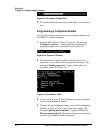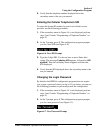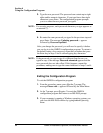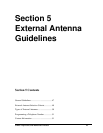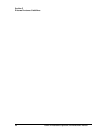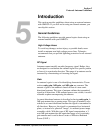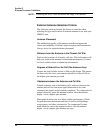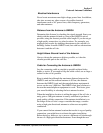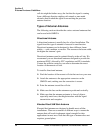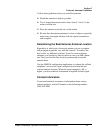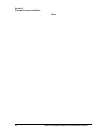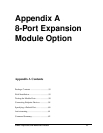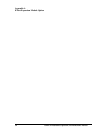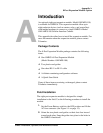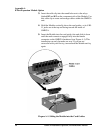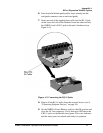
Section 5
External Antenna Guidelines
50 OMEGA Installation, Operation, and Maintenance Manual
cell site might be farther away, the fact that the signal is coming
from a different direction might avoid natural or man-made
obstacles that blocked the signal from reaching the previous
antenna location.
Types of External Antennas
The following sections describe the various external antennas that
can be used with OMEGA.
Directional Antenna
A directional antenna is usually best for a fixed installation. The
signal from this type of antenna is focussed in one direction.
Directional antennas can be designed to have different beam
widths –– wide, medium, or narrow. The narrower the beam width,
the higher the antenna’s gain.
Directional antennas must be pointed directly at the cell site. We
recommend you use directional antennas designed to provide the
maximum E.R.P. allowed by FCC regulations and EIA standards.
Contact the cellular carrier in your area to determine the exact
location of the nearest cell site.
To install a directional antenna:
c
Find the location of the nearest cell site that services your area.
c
Attach the antenna to the appropriate connector on the
OMEGA unit, making sure the connection is secure.
c
Point the antenna toward the cell site.
c
Make sure the bars on the antenna are positioned vertically.
c
Make sure that the antenna perimeter is clear of objects,
especially metal ones, that might interfere with the signal
transmission and reception.
Elevated Feed 3dB Gain Antenna
Elevated feed antennas are designed to handle most cellular
installations. There are a number of different ways to mount the
antenna that will result in adequate signal strength for data
applications in most area. Note that this type of antenna does not
require a ground plane.



